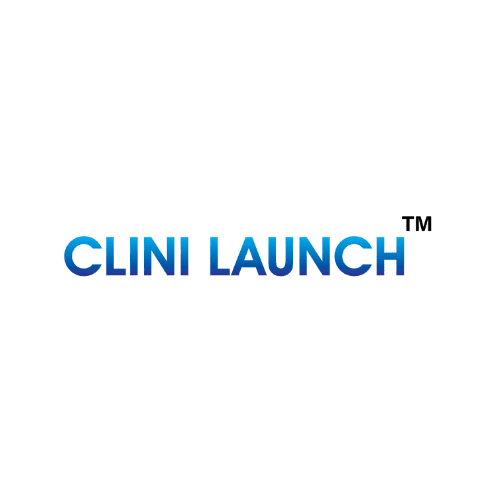Most postdocs believe the path to Principal Investigator (PI) follows a clear progression: publish consistently, build a strong collaboration network, and eventually transition into independence. This belief shapes how they spend their training years, focusing almost exclusively on research output and technical skill development. What becomes clear only later—often too late—is that the PI role requires a completely different skill set than the one they’ve been building.
The PI position is less about conducting better research and more about sustaining a research program over time. This means securing funding in competitive environments, managing team members with varying levels of experience and motivation, navigating institutional requirements that often feel disconnected from actual science, and maintaining forward momentum despite regular setbacks. These responsibilities don’t build naturally from excellence at the bench; they require deliberate preparation in areas that traditional training largely ignores.
The disconnect emerges from how academic training is structured. Doctoral programs prioritize methodological rigor and domain expertise, while postdoctoral positions emphasize productivity and technical refinement. Neither phase systematically develops the operational and interpersonal capabilities that determine whether a newly independent investigator can keep their lab running. The result is a gap between what researchers can do and what the PI role actually demands of them.
This article examines 8 practical skills that consistently distinguish researchers who successfully transition to independent positions from equally talented colleagues who struggle to make that leap. Some of these skills can be developed quickly with focused attention, while others require sustained practice over the final years of postdoctoral training. A few will require you to reconsider advice you’ve received throughout your career about where to invest your limited time and energy.
1. Creativity: Seeing Fundable Connections Others Miss
Creativity isn’t about inspiration striking while you stare pensefully out a window. It’s about recognizing patterns across disciplines that others miss, identifying which “bold” questions will actually survive peer review, and maintaining enough active ideas that some make it past the inevitable graveyard of failed hypotheses.
As a PI in research, your value shifts from executing someone else’s experiments to generating research directions that are both scientifically original and strategically fundable. This means reading broadly enough to steal adaptable ideas from adjacent fields, understanding which questions will resonate with funding panels, and developing the judgment to know when a hypothesis is genuinely novel versus when it’s just poorly informed.
The reality: every successful PI has a graveyard of abandoned projects. Ideas that seemed promising at 4 AM often look naive by noon. The creative capacity that matters isn’t generating perfect ideas—it’s generating enough ideas that some survive contact with reality, peer review, and funding constraints.
Tip- Keep a running capture system for research ideas—digital notes, voice memos, whatever works when ideas hit during inconvenient moments. Most will be garbage. That’s expected. But ideas are fragile when they’re new, and early negative feedback kills potentially valuable directions before they’ve had time to develop supporting evidence. Let ideas mature privately for 2-4 weeks before exposing them to critical review. The goal isn’t to protect your ego—it’s to give genuinely novel approaches time to develop the supporting logic that makes them defensible.
2. Intellectual Rigor and Research Discipline
Mastering Research Credibility is the bedrock of clinical and translational research. To be hired, you must prove you can function as the Chief Compliance Officer of a future lab. Your innovative hypotheses must be anchored by a track record of rigorous adherence to regulatory protocol and validated data. This means your CV must show involvement in securing ethical approval, ensuring patient consent, and enforcing data integrity. Your pedigree is based on precision.
Tip- Your CV must prove competence. Aim for a strong first-author publication record. Beyond that, use your intellectual rigor to successfully choose your battles during peer review—demonstrating mature judgment in defending your core science while being pragmatic about minor concessions.
3. Collaboration and the Art of Idea Exchange
Collaboration is the backbone of scientific leadership. As a Principal Investigator in clinical research, your success depends less on what you can do alone and more on how effectively you connect the people who make your research possible. To earn that trust and independence, you must demonstrate your ability to serve as the central hub linking diverse stakeholders — clinical partners (doctors, nurses), patient communities (for recruitment and consent), and your own research team (technicians, students, and co-investigators). How you manage these relationships will determine your access to resources, patient cohorts, and the strength of the letters that eventually endorse your leadership.
Tip- Build your support system now. Network sideways and down, not just up — your peers today will be your future co-investigators, grant collaborators, and reviewers tomorrow. Crucially, choose your post-doctoral mentor wisely: their willingness to actively enable your independence and write a strong letter is non-negotiable.
4. Strategic Multitasking: The Academic Juggler
The Principal investigator role is a full-contact sport, best described as running a small, high-stakes business. A PI researcher wears many hats — scientists, project leaders, budget controllers, managers, and mentors. On a given day, they may jump from presenting a project update to senior stakeholders to reviewing a contract, guiding a team member, attending a regulatory compliance meeting, and troubleshooting budget allocation — all before lunch.
Their strength lies in orchestrating chaos into purpose, turning competing demands into a symphony of progress. Search committees look for evidence that you can handle this non-scientific chaos. They know your day will be dominated by tasks that pull you away from the bench, primarily writing, administration, and team management.
Tip- You must practice executive functions now. Your primary communication needs to be written and persuasive; therefore, you must aggressively develop your grant and scientific writing skills. Most critically, demonstrate the ability to delegate effectively and the skill to politely say “no” to non-essential administrative demands.
5. Financial Acumen: From Grant Writing to Resource Stewardship
Financial understanding is the primary prerequisite for an independent PI. You must prove you can be both the CEO and the Chief Financial Officer of your lab. This involves two phases: Pre-Award (Fundraising), which requires accurate calculation of Personnel, Fringe, and F&A (Indirect Costs) to create a justifiable budget, and Post-Award (Stewardship), which demands diligent financial tracking (burn rate) and strict Compliance with fund use to avoid regulatory penalties.
Tip- The PI’s Funding Paradox: You cannot become a Principal investigator without grants, but you cannot get grants without becoming a PI. Resolve this by contributing to current lab grants and ensuring you are named on the proposal.
6. Resilience and the Art of Bouncing Back
Failure is the default state of academic research—rejected grants, rejected papers, and failed experiments are constant. To get the job, you must prove your mental resilience is strong enough to lead a team through this pressure without collapsing.
Tip- Your well-being is a professional requirement. You must personally adopt a growth mindset—treating failure as feedback, not defeat. Critically, look after yourself: Actively protecting time for life outside work ensures you have the reserve capacity to absorb the high-stakes crises that are inevitable in a PI’s life.
7. Building a Personal Brand and Belief System
Establishing your PI identity is about defining your academic enterprise, rooted in integrity, credibility, and self-awareness. Search committees need a clear articulation of who you are, what you stand for, and what you will do.
Tip- Articulate your unique vision for the search committee. You must intentionally define what your future lab stands for and the culture you will instill. Simultaneously, maintain honesty with yourself about your goals. This self-awareness, knowing when persistence is no longer profitable and a pivot is required, demonstrates mature leadership.
8.Site management
A clinical trial is the ultimate stress test of a Principal Investigator’s executive capacity.
At the study site, the PI is the final legal and ethical authority, entrusted with the most sacred obligation in research — protecting patient safety. Every decision, from protocol design to adverse event reporting, demands integrity, precision, and moral clarity.
This responsibility goes beyond a single study phase. It’s a sustained exercise in accountability, endurance, and attention to detail — spanning setup, execution, monitoring, and closeout. Each step tests the PI’s ability to integrate research credibility with strategic multitasking, balancing scientific rigor with operational control.
In essence, a well-run clinical trial doesn’t just validate a drug or device; it validates the PI’s leadership — their ability to uphold ethics under pressure while keeping the machinery of science running seamlessly.
Conclusion
The core message for the aspiring Principal Investigator is clear: your next step is less about being the smartest scientist and more about developing executive skills, social intelligence, and mental resilience.
Hard work and technical mastery are simply the entry ticket. The real distinction comes from your ability to lead people, manage complexity, secure funding, and, above all, learn to fail better.
The PG Diploma in Clinical Research at CliniLaunch Research Institute is built precisely on this philosophy. Through an industry-aligned curriculum, mentorship from domain experts, and practical exposure to trial management, regulatory affairs, and research ethics, the program helps learners develop the real-world skill set that defines a Principal Investigator.
By internalizing these seven leadership skills and grounding them in structured professional training, you prepare yourself not just for a PI role — but for a career of scientific leadership where curiosity, resilience, and accountability drive lasting impact.




